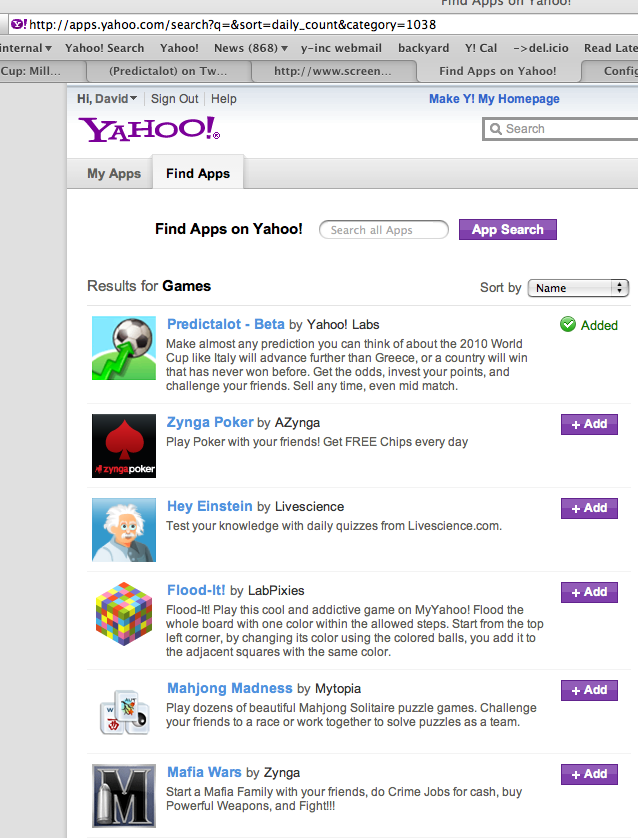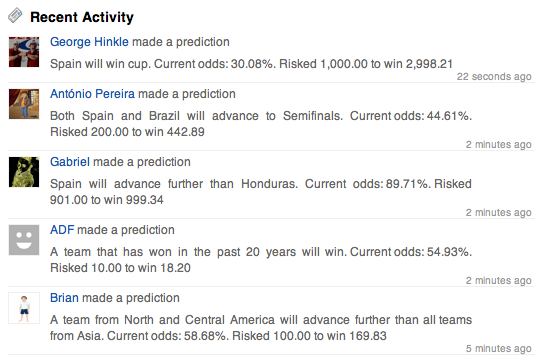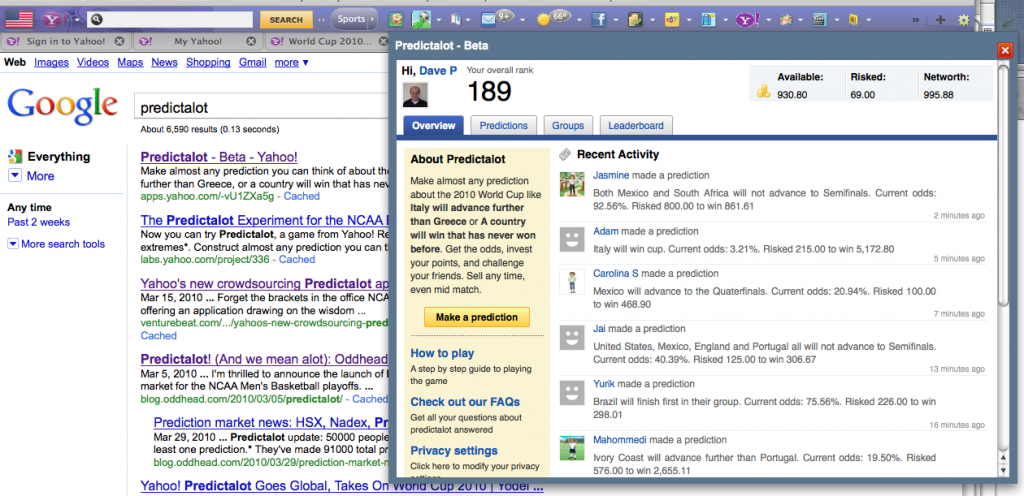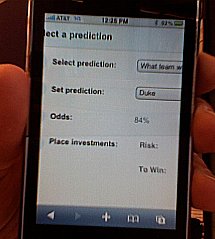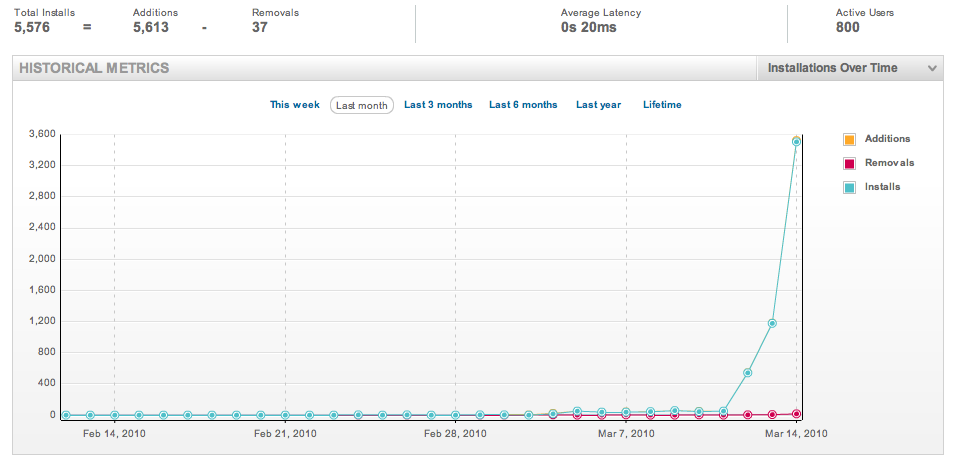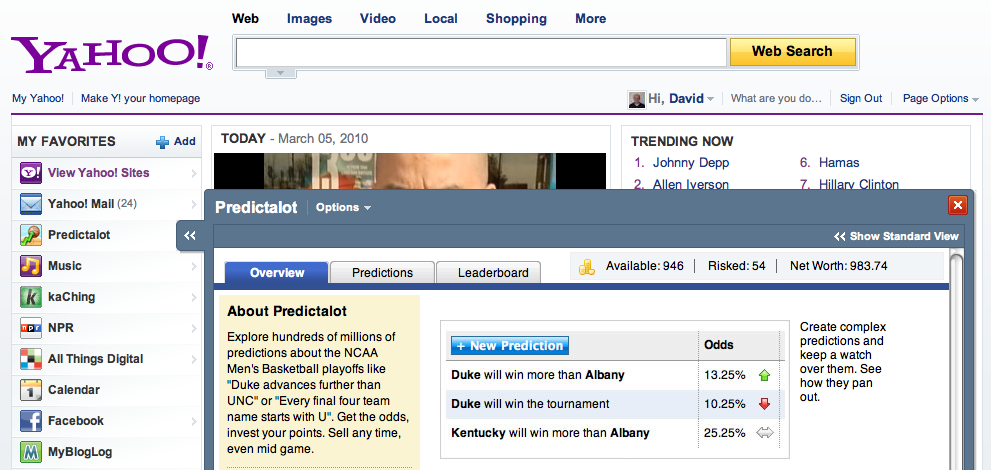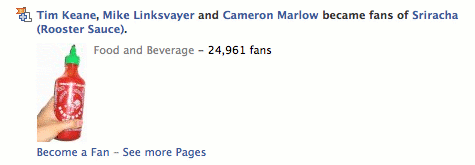Research and Analysis of Tail Phenomenon Symposium
August 20, 2010, Sunnyvale, CA
The last decade has witnessed the emergence of enormous scale artifacts resulting from the independent action of hundreds of millions of people; for example, web repositories, social networks, mobile communication patterns, and consumption in “limitless” stores… the first Research and Analysis of Tail phenomena Symposium (RATS)… will explore the different computational, statistical, and modeling problems related to tail phenomena… We are particularly encouraging summer interns in any of the Bay Area research centers to join us in the event.
We will start with a video welcome by Chris Anderson (Wired), followed by a series of invited talks by Michael Mitzenmacher (Harvard), Aaron Clauset (Univ. of Colorado), Neel Sundaresan (eBay), Sharad Goel (Yahoo! Research, NY) and Michael Schwarz (Yahoo! Research, CA).We invite proposals for short (20 minute) talks from students and researchers working in the area.
CrowdCof2010: 1st Annual Conference on the Future of Distributed Work
October 4, 2010, San Francisco, CA
Were you crowdsourcing before it was cool? We want to hear about your projects.
We are inviting submissions on all topics regarding crowdsourcing, including:
- Past, present, and future of crowdsourcing
- Quality assurance and metrics
- Social and economic implications of crowdsourcing
- Task design/Worker incentives
- Innovative projects, experiments, and applications
- Submission Guidelines
Deadline: Sept. 1
CrowdConf will bring together researchers, technologists, outsourcing entrepreneurs, legal scholars, and artists for the first time to discuss how crowdsourcing is transforming human computation and the future of work.
Confirmed Speakers:
Sharon Chirella: Vice President, Amazon Mechanical Turk
Tim Ferriss : Author, The 4-Hour Work Week
David Alan Grier: Author, When Computers Were Human
Barney Pell: Partner, Search Strategist, and Evangelist, Microsoft
Maynard Webb: CEO, LiveOps
Jonathan Zittrain: Professor of Law and Computer Science, Harvard
Computational Social Science and the Wisdom of Crowds Workshop at NIPS 2010
December 10th or 11th, 2010, Whistler, Canada
We welcome contributions on theoretical models, empirical work, and everything in between, including but not limited to:
- Automatic aggregation of opinions or knowledge
- Prediction markets / information markets
- Incentives in social computation (e.g., games with a purpose)
- Studies of events and trends (e.g., in politics)
- Analysis of and experiments on distributed collaboration and consensus-building, including crowdsourcing (e.g., Mechanical Turk) and peer-production systems (e.g., Wikipedia and Yahoo! Answers)
- Group dynamics and decision-making
- Modeling network interaction content (e.g., text analysis of blog posts, tweets, emails, chats, etc.)
- Social networks
[Covers] computational social science… [and] social computing… with an emphasis on the role of
machine learning…Deadline for submissions: Friday October 8, 2010
